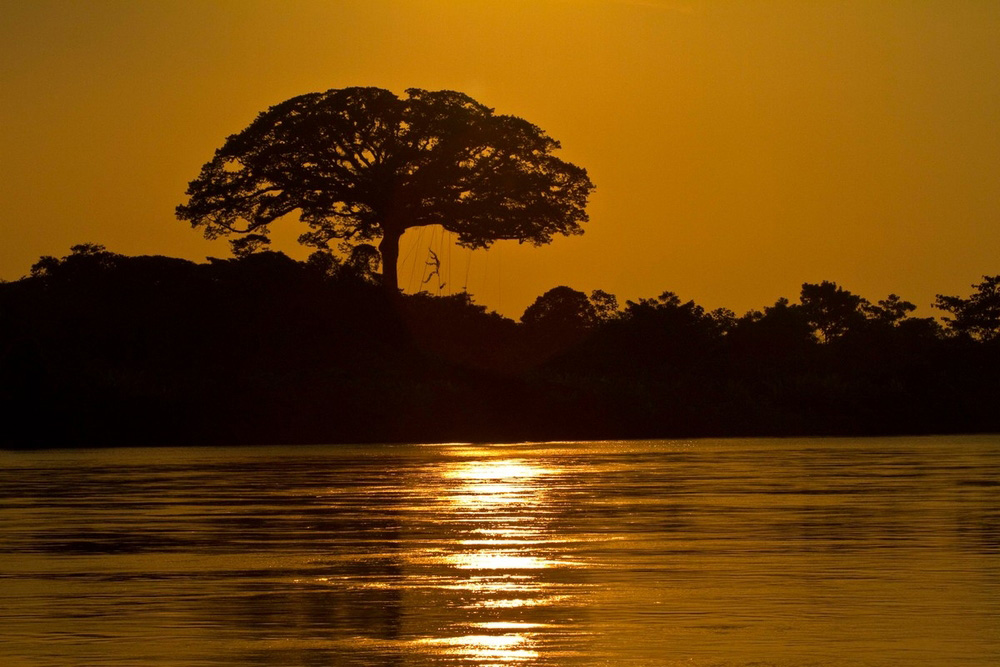The WWF is run at a local level by the following offices...
- WWF Global
- Adria
- Argentina
- Armenia
- AsiaPacific
- Australia
- Austria
- Azerbaijan
- Belgium
- Bhutan
- Bolivia
- Borneo
- Brazil
- Bulgaria
- Cambodia
- Cameroon
- Canada
- Caucasus
- Central African Republic
- Central America
- Chile
- China
- Colombia
- Croatia
- Democratic Republic of the Congo
- Denmark
- Ecuador
- European Policy Office
- Finland
CONSERVATION PULSE
MAY 2018

International Biodiversity Day
International Biodiversity Day is celebrated every 22 May – an opportunity to highlight biodiversity (the variety of wildlife and places where they live) and how it ensures the planet’s natural systems provide essentials such as fresh water and clean air. WWF is currently partnering with the UN Convention on Biological Diversity to help people around the world understand the importance and values of biodiversity and how they can conserve it and use it sustainably. And we will be reaching out to millions of people in the coming two years about this vital message. This year’s International Biodiversity Day saw WWF and the Convention on Migratory Species highlighting the critical role played by dolphins, whales and porpoises in maintaining ocean ecosystems – and how, every two minutes or so, one of them is accidentally killed in fishing operations somewhere in the world. We want solutions to be introduced such as alternative fishing methods and effectively managed marine protected areas.

Boost for forest protection in Russia
Global packaging and paper company Mondi, which has been working with WWF in Russia since 2014, has put a moratorium on sourcing wood from 1.25 million hectares of intact boreal forest in the country. Boreal forests are found in the cold region south of the Arctic, representing almost a third of the world’s remaining forest cover. Most of these forests are found in Russia, where more than 800 million forest hectares store more carbon in trees, soil and peat than all tropical and temperate forests combined, and play a critical role in regulating global climate. Balancing local economic needs while protecting this forest has been a cornerstone of our work in these forests. The life and culture of many local communities are interwoven with these ancient forest landscapes which are home to the last remaining herds of some reindeer subspecies and large predators such as bears, wolves, lynx and many other rare species. Over 20 million hectares of Russia’s intact forest landscapes, which were previously little influenced by economic activity, have been lost since 2000.
As of 26 June 2023, WWF Russia (Vsemirnyi Fond Prirody) is no longer part of the WWF Network.

Historic ruling for Colombia’s forests and people
Earlier this year 25 Colombian children and young adults, with support from advocacy organization Dejusticia, brought a case before the country’s Supreme Court. They argued that future generations will face the worst effects of climate change and demanded that the government halt deforestation and guarantee their involvement in developing plans to mitigate climate change and preserve biodiversity. Now, Colombia’s Supreme Court has recognized the Colombian Amazon as a subject with rights and ordered the government to develop urgent action plans within the next four months to protect it and ensure its sustainable management, including strict measures to reduce deforestation. WWF, which has been tackling climate risks for the Amazon for over decade, welcomes this historic decision. Mary Lou Higgins, Director, WWF-Colombia said: “We are certain this decision will be key to ensuring the effective protection of the Amazon and catalysing Colombia’s fulfilment of the Paris Agreement.”

Community-managed forests in central Africa
Most forest land in the Democratic Republic of the Congo belongs to the government, which leases it out though rarely to the communities who depend on it. But now the government is working with USAID’s Central Africa Regional Program for the Environment (CARPE), and others including WWF, to empower communities to manage their own forests. Last year, we helped local people take control of 13 concessions in Mai-Ndombe province, and now 14 have followed in Equateur province. But people also need access to income sources that don’t involve overexploiting their environment. CARPE is funding a range of small-scale livelihood projects, including livestock-raising, shade-grown cocoa cultivation, and building and selling fuel-efficient stoves. Improving market access for these budding businesses will be key to ensuring that communities can increase household income and maintain these new livelihoods.

Mountain gorilla numbers surpass 1,000
The number of critically endangered mountain gorillas in the Virunga Massif region of East Africa is rising. Recent survey results reveal that numbers of the species, which WWF and other partners work to protect, have risen by more than 30 per cent since 2010 to more than 600, in 41 social groups. When the numbers in Bwindi Impenetrable National Park, the only place where others are found, are added, the global wild population of mountain gorillas now exceeds 1,000. “It is incredibly heartening to see how the efforts of so many different groups – communities, governments, NGOs – have paid off,” said WWF ambassador Sir David Attenborough, adding “the threats to mountain gorillas haven’t disappeared entirely, of course, so now the challenge must be to ensure that these achievements are sustained.” The very sad news that a number of wildlife rangers in Virunga National Park have been killed in recent weeks is a strong reminder of this ongoing challenge.